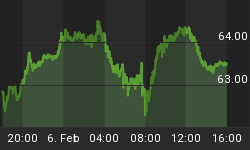"I'll give them heroics. I'll give them the most spectacular heroics they've ever seen! And when I'm old and I've had my fun, I'll sell my inventions so everyone can be superheroes! Everyone can be super! And when everyone's super, [laughs maniacally] no-one will be." ~ Syndrome from The Incredibles
In a recent post on Business Insider, Henry Blodget (yes, that Henry Blodget) laments the fact that no one is talking about "An Easy Fair Solution to the Global Debt Crisis."
That solution is Bankruptcy. As Blodget puts it "Since the dawn of time men have been lending other money (or other things of value) and not getting paid back, but it is only recently that the solution to this state of affairs has gotten so complicated that even PhD economists can't figure it out."
While there may be a reluctance of society at large to accept or embrace bankruptcy, default and foreclosure; the good news is that there is a growing discussion and acceptance of the problem at hand: The global financial system is awash in an ocean of debt that is unlikely to be repaid.
Blodgett is slightly off mark in failing to note that the preferred political solution is to bypass bankruptcy and simply inflate away the debt. In the age of information however the general populace has caught on to the deceit of inflation, and the politician's preferred solution may not be politically feasible.
With the growing acceptance of the problem at hand and the accompanying realization in that the debts are not going to be paid back, the questions becomes now what?
In The Great Haircut, Reuters' reporters Jennifer Ablan and Mathew Goldstein discuss the idea that in response to a consumer debt trap "many economists are calling for a radical step: massive debt relief."
The ideas range from a type of brokered "out of court settlement between institutional bond investors, banks and consumer advocates," to a more radical "Debt Jubilee to forgive excess mortgage and credit card debt for some borrowers."
The Reuter's report cites real estate data and analytics company CoreLogic in noting that 22.5 percent of U.S. homeowners owe more on the mortgage than the house is worth. A number of those advocating debt forgiveness suggest that mortgage balances be re-worked or rates be re-financed for homeowners who are seriously delinquent.
What is left unsaid is how this is "fair" or appropriate for those homeowners who are upside down, but are still making payments.
Even some of the more reasonable "brokered" solutions akin to a mass reorganization or restructuring, mentioned in "Haircut" would likely be deeply flawed by the political process.
Why not just let the process play out?
As Blodgett says of the fore-mentioned bankruptcy solution: "both parties get hurt by the process...and that's as it should be. Because they are both responsible for the mistake. The borrower borrowed too much and the lender loaned too much. And they both paid the price for their optimism and/or greed."
David Stockman writing of the of 13 million underwater homeowners, observes that "likely default [would relieve] them of a lifetime of debt slavery, even as they reverted to the status of credit impaired renters."
Which begs the question: what is so wrong with bankruptcy or default? Once the stigma of foreclosure or bankruptcy is removed, as Stockman writes the "homeowner" (and economy) are free to move forward, and be better for the ware.
Corporations declare bankruptcy all the time and no one judges the morality of the decision. In the case of foreclosure there is no contract that is being violated. The deal is if the homeowner doesn't make the payments, the bank takes the house. If it is in the borrower's "strategic interest" to default, what better repercussion to the lenders who should have known better.
So the banks go belly up? Good, and as Blodget says, there is a process for that. So investors who didn't pay any attention to what they were buying take a loss? That is how the game is supposed to work (even if the investor is China).
For those who think this would be too catastrophic and shocking: would you rather rip the bandage off quickly or peel it back slowly and agonizingly.
Will the process result in a cascade of foreclosure, bankruptcy and default and chaos?
Maybe, maybe not. In yet another piece Stockman takes on crony capitalism and "the urban legend ...that in September 2008 the payments system was on the cusp of crashing, and that absent the bailouts, companies would have missed payrolls, ATMs would have gone dark and general financial disintegration would have ensued.
No doubt there would be a lot of pain, and credit ratings for consumers and borrowing rates for corporations and governments will be affected, but then again everything is relative.
As the Super wannabe Syndrome from "The Incredibles" taught us: When everyone has bad credit.....no one will have bad credit.















